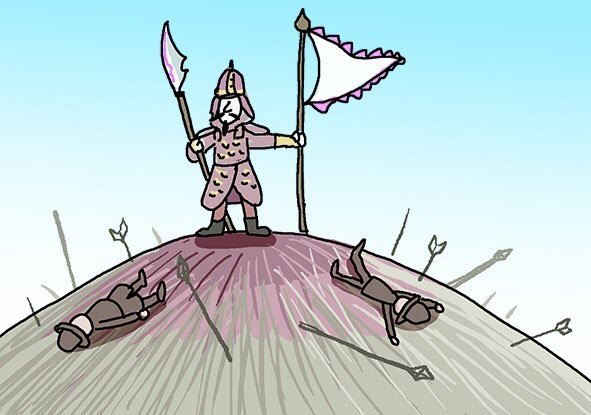Jiang Ziya's 12 victory methods
Jiang Ziya's 12 victory methods
Posted May. 30, 2023 07:58,
Updated May. 30, 2023 07:58

Sun Tzu said that the greatest victory is to win without fighting while preserving the armies of both allies and enemies. Everyone agrees with this statement, but implementing it is not easy. An ancient Chinese military book, the Six Secret Teachings, records a conversation between King Wen of the Zhou Dynasty and Jiang Ziya. In this discussion, they explore the strategies to conquer an enemy through stratagem without resorting to the use of force.
Jiang Ziya suggests a staggering 12 strategies. The significance of having 12 strategies lies in the absence of a definitive approach, making it challenging to put them into practice. As a social entity, a nation is born out of diverse interests and conflicts, inevitably harboring elements of internal discord. While warfare may temporarily unite conflicting factions by presenting a common enemy, the longer a war persists, the more excruciatingly it exposes internal divisions. For adversaries, it is advantageous to exploit and exacerbate the national divisions of their opponents before engaging in warfare. This is the background of why Jiang Ziya has proposed 12 methods.
The fifth strategy entails favoring the enemy's loyalists, sowing suspicion within the monarch, and influencing the appointment of less capable or loyal individuals to critical positions. This practice was prevalent during the Warring States period in ancient China and often resulted in decisive victories. The underlying reason for its effectiveness is straightforward. When tensions arise with a neighboring nation, emotions run high. Individuals who vehemently express hatred towards the enemy and promote exclusionary policies are perceived as patriots, while those advocating friendship and exchange are branded as traitors.
At that very moment, the flexibility, intelligence, and adaptability of national policy become rigid. As emphasized in numerous military texts, the fundamental principle of tactics lies in identifying the enemy's vulnerabilities, understanding their strengths, concealing our responses, and possessing the agility to adapt effectively to any situation. A ship floats upon the water, propelled by the current, while a stone sinks. Similarly, when a country becomes encased in a superficial layer of emotional patriotism, its inner strengths are stifled, and only loud voices prevail. Those entrenched within a hardened and impenetrable shell remain oblivious to this reality. The Qing invasion of Joseon serves as a poignant example wherein they remained unaware even as the cracks in the shell appeared, and the enemy surged forward.




![17년 망명 끝에, 부모 원수 내쫓고 집권[지금, 이 사람]](https://dimg.donga.com/c/138/175/90/1/wps/NEWS/IMAGE/2026/02/18/133376197.3.jpg)

![[속보]美대법원, 트럼프의 국가별 상호관세 ‘위법’ 판결](https://dimg.donga.com/c/138/175/90/1/wps/NEWS/IMAGE/2026/02/21/133392930.1.jpg)
